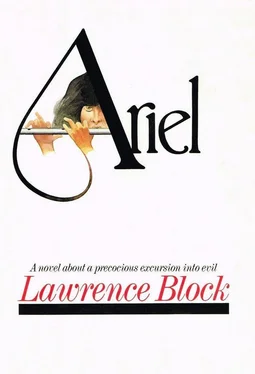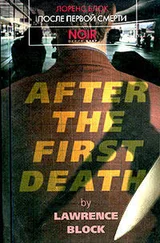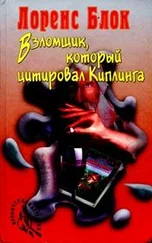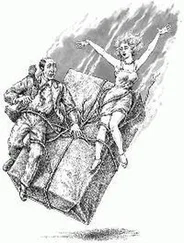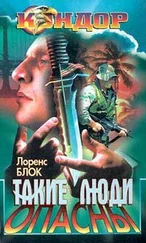“I’ll try to call you.”
“Can’t we see each other?”
“Listen, I can’t make plans,” he snapped. “How do I know what I’ll be doing tomorrow? I might be dead tomorrow.”
“What are you talking about?”
“We could all be dead tomorrow,” he said. “Maybe we’d be better off.”
She was left holding a dead phone in her hand, shaking her head in wonder. He had never said anything remotely like that before. Nor had she ever felt the way she was feeling lately.
She felt all shaky inside.
Was it time for a pill? You were supposed to wait four hours. Had it been four hours? Not that the pills could have little Swiss watches ticking away inside of them. Four hours was the standard medical interval, wasn’t it? Four hours, two hundred forty minutes, fourteen thousand four hundred seconds — there was nothing magical, was there, about that particular span of time?
She laughed at her own rationalization. And went upstairs to take a Valium.
The pill grabbed hold almost immediately, as if the mere act of swallowing it engendered a psychological easing of tension even before the tablet could dissolve and enter the bloodstream. With its assistance, Roberta was able to concentrate on preparing dinner. While it was cooking Ariel came home, carrying her horrible flute, and David arrived moments later. For once Roberta was glad to see them, glad for company in the house.
The meal went well enough, she thought. She and David had a drink before dinner. You weren’t supposed to drink when you were taking Valium, she knew, but she didn’t think one would hurt. It did make her the slightest bit woozy, but its effects had vanished by the time dinner was over.
Afterward she cleared the table, did the dishes. Now a few hours of television, she thought, and you’ll have gotten through another day, and that’s not so bad, is it? She could just take them one at a time, and next week perhaps she’d start seeing Gintzler again. Or maybe not. Maybe she didn’t need therapy.
She couldn’t concentrate on the television.
Twice she got up, walked to the closed door of David’s study. Both times she made herself turn and walk back to the television set.
The third time she knocked briskly, then opened the door. He was sitting like some sort of English gentleman with his pipe and his brandy and his book. He frowned at her, and she saw that his eyes were already slightly glazed. He was drunk, she thought.
“What?” he said. “What do you want?”
Drunk. No time for a conversation, least of all a heavy conversation. Say something trivial, she told herself. Something about trouble with the car, something that won’t lead anywhere, and then go back to the television set and numb yourself out until it’s time for bed.
Instead she said, “Could you come in the other room for a minute? I think we should talk.”
Ariel started the tape recorder, picked up her flute to play along with the track she had recorded earlier. She put the flute to her lips and waited, but instead of playing she merely sat and listened to the music. After a few moments she set her flute aside.
It had been a funny day. For some reason Erskine had been getting on her nerves, and she didn’t think it was anything he did. It was just her nerves.
On the way to his house after school, she had seen Jeffrey Channing three times. The first time Erskine didn’t see him. The car passed them without slowing down, and she just got a glimpse of him behind the wheel before he was out of sight. Another time his car crossed an intersection as they were approaching it, and it was Erskine who pointed it out, reading the license number as the car disappeared from view. The third time, Channing drove slowly past them when they were on Erskine’s block. Erskine said, “Don’t look but it’s him again,” and of course she looked, and her eyes locked with his but only for a moment because although he was driving very slowly he was still going faster than they were.
Several times that afternoon they looked out of Erskine’s third-floor window, and once she thought she saw his car parked directly across the street, but it was already growing dark by then and it was hard to be sure. And on the way home she kept looking nervously around, trying to spot him, but she was unsuccessful.
She kept wanting to tell Erskine the thought that had come to her, that Jeffrey Channing might be her father. But she was afraid he would think she was demented. And she was having more and more trouble deciding how she felt about the man. If he was her father she wished he would stop playing tag in his car and come right out and talk to her, and if he wasn’t her father she wished he would disappear altogether, because then he was either working for Roberta or was some free-lance pervert and she didn’t want to have anything to do with him.
The other thing that bothered her was Veronica. Veronica still hadn’t come to school, and somebody said something about her being in the hospital for tests. Something about her blood, and maybe it was nothing, but on television programs whenever anybody went into the hospital for routine blood tests you knew they were going to die of leukemia or something equally horrible before the hour was out. And if she and Erskine hadn’t had that stupid conversation about killing people she’d just be vaguely sorry for Veronica, if indeed there was something seriously wrong with her, but they had had that conversation, and the two people they mentioned were Graham and Veronica, and Graham had a ruptured spleen and Veronica had whatever she had, and it was creepy.
Really creepy.
She drifted to the music, reached for her flute, put it aside without sounding a note. She glanced at the portrait, then heard something that made her tune down the volume on the tape recorder.
Roberta and David. In conversation, their voices raised to an unusual level.
She turned the music up again, deciding to ignore them. But something made her go to her door and open it. She could hear them a little better now. She hesitated, then walked silently to the staircase and went down halfway, seating herself on a step.
She heard Roberta insist that they have the conversation some other time, that David was drunk. She heard David say loudly that he wasn’t drunk, that no one could blame him for drinking anyway.
She heard Roberta protest that the child would hear. She heard David reply that the child had a name, that the child’s name was Ariel, and that a decent mother would call her child by name. Besides, he added, Ariel wouldn’t hear anything. She was playing her flute, and couldn’t Roberta hear it?
They were both silent for a moment, and Ariel listened to the tape of her music. You could hear it clearly.
Then she heard Roberta say that she could hear the music, all right, if you wanted to call it music. And then there was a long exchange that she couldn’t follow, and then she lost interest and thought of returning to her room, and then abruptly David was shouting again, accusing Roberta of having an affair with... Jeff Channing.
Ariel was stunned. She tried to listen to what was said next but her head was reeling and she had trouble taking it all in. There was a lot said, a lot shouted, but the one thing that stayed with her was David’s accusation. Roberta and Channing, Roberta and Channing — her head was spinning with it.
Then he wasn’t her father. He was Roberta’s lover. But maybe he was both, maybe he had started sleeping with Roberta after he had tracked down the Jardells and found they adopted his daughter. Maybe...
The possibilities suggested themselves infinitely. She stood up, felt dizzy for a moment, then managed to turn and make her way silently up the stairs. Roberta and David continued their argument below her but she was no longer able to pay them any attention.
Читать дальше
